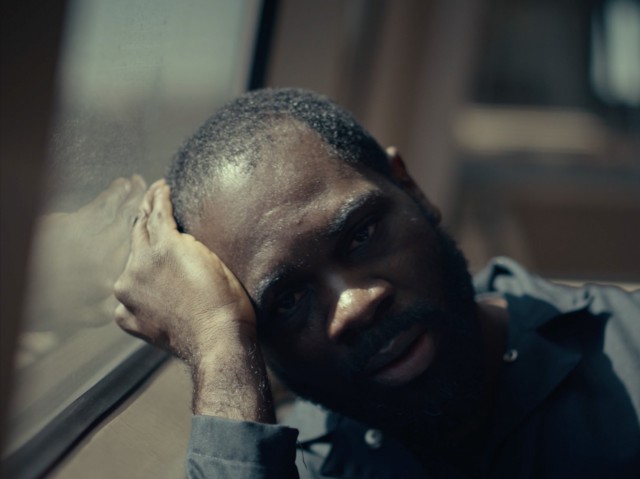While at work, Okem receives one of the most distressing phone calls imaginable, initiating a race against time. As he navigates through feelings of anger, terror, and helplessness, writer/director Joshua Okwuosa’s fifteen-minute film, Okem, immerses the audience in the nightmarish situation faced by its titular protagonist over the course of one day.
“The film was inspired by a tragedy which befell my family”, Okwuosa shared with us, before explaining that this personal disaster led him to pen a narrative which is “inextricably linked to the Nigerian consciousness both at home and in the diaspora”. This intimate perspective went into the crafting of the main character, Okem, who is an ocean away from what is happening back home in Nigeria, rendering him unable, in more than one way, to actively resolve the situation and forcing him to rely on his brother. To complete the personal angle, Okwuosa also had his own father, Major Okwuosa, involved in the project as an EP, present from pre to post production.
Beyond his personal motivation for making the film, which Okwuosa described as a coping mechanism, the writer/director also aimed to depict on screen this specific societal issue, without sensationalizing it, the way it had been done in the past. By focusing the story solely from the perspective of his isolated main character, it allows the audience to grasp the emotional toll, the pain, bleakness and despair.

“The story was so personal, not only to myself, but to everyone involved in it that it simply bled onto the screen” – Okwuosa discussing his prodcution.
The first three minutes of the film provide a highly effective exposition, as we get to know Okem, his life in the US and his family back in Nigeria. In addition to that family dynamic, we witness his worries and subtle hints of guilt associated with having left home – a sentiment familiar to many immigrants – and this emotional backdrop works to make the events of Okem all the more devastating. Living with that guilt is one thing, but when something truly devastating happens while you’re away, it significantly intensifies the weight of that feeling and that burden is very much present throughout Okem.
As time runs out for Okem, Okwuosa portrays his dire situation on screen by making the frame become suffocating. As the image and the sound echo his anxiety, the short takes on an immersive tension, making us hold our breath, even during moments of anxious waiting. Since the narrative focuses on Okem’s experience of that day, most scenes feature close-ups, with the character’s face dominating the frame. Given the material, the emotional arc of the story heavily relied on the performance, and this framing adds another constraint, forcing the actor (Conphidance) to convey the emotions primarily through facial expressions. Despite these challenges, his performance is remarkable. From the first scene to the last, throughout the film’s 15-minute duration, he compellingly navigates this nightmare scenario, bringing all the nuances and complex emotions of the screenplay to the screen, fleshing out his character with great authenticity and depth.
Okwuosa is currently working on his debut feature in Nigeria.

 Céline Roustan
Céline Roustan